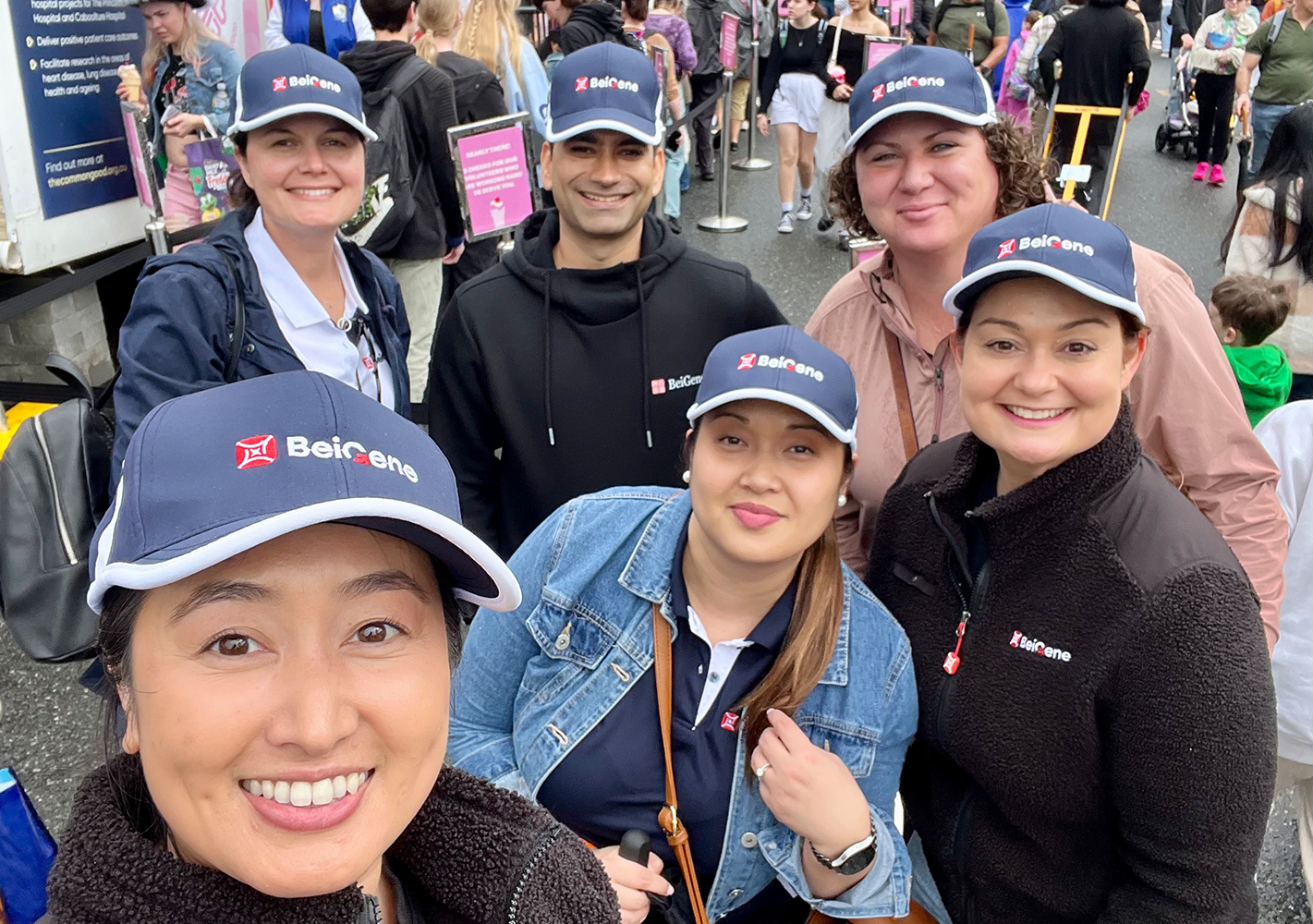BeiGene is a Tremendous Place to Grow your Career
Why did you choose to work at BeiGene?
The decision to join BeiGene was an easy one. Since I have been working in oncology clinical development, I was well aware of both BeiGene’s scientific ambition, as well as the early successes with both tislelizumab and zanibrutinib. It had been my career aspiration for some time to oversee clinical development of a diverse portfolio of investigational medicines. BeiGene’s commitment to scientific innovation and track record of early successes were very compelling. During the interview process, I also personally connected with the senior leaders and was very excited to have the opportunity to join.

What has your experience been with our company culture?
There are several notable aspects to the company culture. First, because the most senior leaders at BeiGene have been here since the company’s founding, there has been a consistency in vision that I believe is extremely important to supporting a strong organizational culture. Next, BeiGene has a deep commitment to scientific excellence and innovation. Equally important is the deep and authentic commitment to patient access. Patient access is at the forefront of everything we do, and I stand behind that value fully. Finally, cancer is a borderless problem and we have a truly borderless organization that esteems collaboration. The organizational commitments to innovation, access and collaboration are unique, and I’m very proud to be a part of this organization.
Which of our values do you connect with the most and why?
While I connect with all of our values, ‘Patients First’ resonates the most with me. My decision to leave clinical practice and transition to oncology drug development was primarily motivated by the hope to impact a larger number of patients than I could through direct one-on-one patient care. I have always been principally motivated by the goal of improving patient outcomes, therefore, the patient must come first. At BeiGene, we put the patient first not only through innovation in new investigational medicines, but also in the way that we design and deliver our clinical studies. When I enrolled patients under my care onto investigational clinical trials, I often heard the sentiment from many patients, “I hope this helps me, but I also hope my participation helps other patients with cancer.” We honor this good will and commitment through our approach to clinical development.
What were the pivotal moments in your career? Why did you make those moves? What did those transitions teach you?
The most important decision in my professional career was the decision to leave clinical practice for a career in oncology drug development. As physicians, we invest years of time in developing clinical expertise to enable us to effectively care for patients. So, the decision to leave direct patient care was difficult. My decision was informed by my own clinical experience in oncology. I was regularly administering standard of care chemotherapies to my patients and managing them through difficult side effects, while sometimes patients derived little or no clinical benefit. However, I was also enrolling patients on clinical studies with targeted therapies and immunotherapies and observing far greater benefit with much less toxicity. I made the decision to move to drug development so that I could be directly involved with development of novel therapies with the hope of being able to impact standard of care in a way that was not possible in my prior clinical role.
How did you focus on your own development? What experiences, exposure, and education helped you the most?
There are a number of experiences that I believe have been very helpful. One of my clinical mentors taught me to “learn something from every patient”, and I have followed this guidance throughout my career. Daily work can become routine as we develop expertise, and it is important to continuously be looking for little variations that allow us to deepen our knowledge and experience. Next, having good mentors is critical but it is also important to recognize potential role models are everywhere. Throughout my career, I have on several occasions observed someone who I thought was very effective in their role and then reflected on “What makes them effective?” and “What are their constructive behaviors that I can model?”. I have found it very powerful to try different approaches to evolve my own style over time. Finally, I have always followed my intellectual interests, in other words, it is much easier to stay eager and engaged if you are doing something you are passionate about.
What advice would you give to colleagues about growing and developing at BeiGene?
BeiGene is a tremendous place to grow your career. The organization is sufficiently large to provide career development opportunities across the full spectrum of drug development. Our approach within clinical development allows people to work on different programs concurrently, which accelerates an individual’s experiences with different mechanisms, technology platforms and tumor types. We are also small enough to have individual mentorship and a tailored development plan. Additionally, because we are largely CRO free, we have in house capabilities and expertise that enable the teams to work directly with the sites and investigators rather than through a third party. Be deliberate and opportunities abound.






